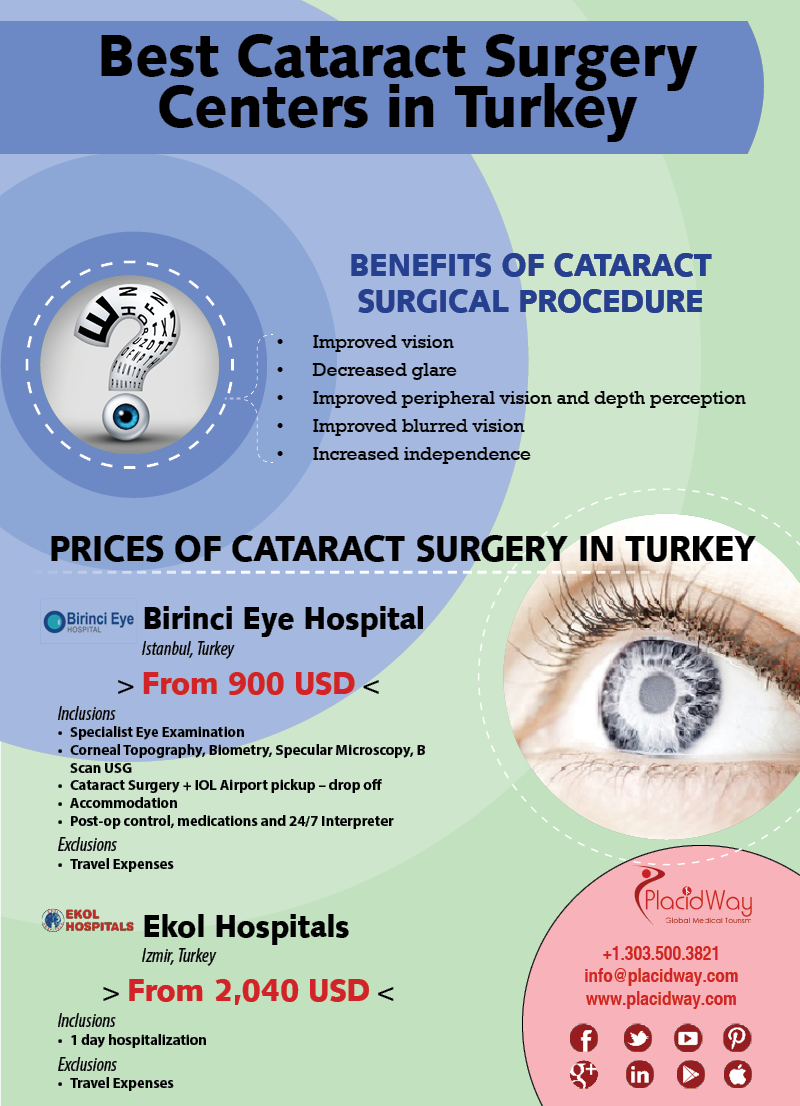Identify The Significant Contrasts Between Typical Cataract Surgery And Laser Techniques To Figure Out Which Is Optimal For Your Eyesight Requires

Published By-Ingram Tobiasen
When encountering cataract surgery, you could question the distinctions between conventional and laser methods. Each approach has its very own set of advantages and disadvantages, influencing your recovery and overall experience. Comprehending these options is critical for making an informed choice about your eye wellness. So, what should you take into consideration when selecting the appropriate approach for your needs? Let's discover the information further.
Introduction of Typical Cataract Surgery
Standard cataract surgical procedure, usually referred to as phacoemulsification, is a well-established procedure that efficiently restores vision by getting rid of the over cast lens of the eye.
During this surgical procedure, your doctor will produce a tiny laceration in your cornea, enabling access to the lens. Utilizing ultrasound waves, they'll break up the gloomy lens into small fragments, which are then gently suctioned out.
Once the old lens is gotten rid of, an artificial intraocular lens (IOL) is implanted to recover clear vision. The surgery normally takes less than an hour and is carried out under neighborhood anesthetic, decreasing discomfort.
Later, you'll likely discover improvements in your vision as your eye heals. You'll require to follow post-operative treatment guidelines to ensure optimal recuperation.
Benefits and Disadvantages of Laser-Assisted Cataract Surgery
While lots of people gain from traditional methods, laser-assisted cataract surgery uses distinctive benefits and some drawbacks worth considering.
One major advantage is accuracy; the laser creates exact lacerations, which can cause quicker recovery and decreased risk of problems. You may additionally experience much less discomfort throughout the treatment. Furthermore, Cataract Correction Surgery can break up the cataract more effectively, requiring much less energy from the cosmetic surgeon.
Nevertheless, it is essential to weigh these advantages versus prospective negative aspects. Laser-assisted surgery usually sets you back greater than conventional approaches, and not all insurance policy prepares cover it.
Moreover, the innovation might not be offered in every center, which might limit your choices. Inevitably, you'll want to go over these aspects with your eye treatment professional to establish the best method for you.
Recuperation and Aftercare for Cataract Surgical Treatment
After cataract surgical procedure, whether it was carried out making use of typical techniques or laser aid, your healing procedure is necessary for achieving the best feasible vision outcomes.
You should rest for the first day and stay clear of strenuous activities. Maintain your eyes safeguarded with sunglasses when outdoors, particularly in intense light.
It's important to follow your specialist's guidelines pertaining to eye declines and medications; these assistance protect against infection and minimize swelling.
You might experience mild discomfort or blurry vision at first, yet this ought to enhance gradually.
Participate in all follow-up consultations to check your healing progress. If you observe abrupt discomfort, increased soreness, or vision changes, contact your physician promptly.
Following these standards will support a smooth recovery and improve your total results.
Final thought
To conclude, choosing between conventional and laser-assisted cataract surgery depends upon your particular needs and circumstances. While conventional methods are well-established and effective, laser techniques use improved accuracy and potentially quicker recovery. It's important to discuss your options with your eye care specialist to figure out which approach suits you finest. Eventually, both techniques aim to restore your vision and improve your quality of life, so you can get back to enjoying your daily activities.

